Researching together
The ‘COVID-19 and low-income families: Researching together’ collective are working together as a Special Interest Group (SIG) to support the generation of data specifically on COVID-19 and low-income families, and then synthesising and disseminating relevant findings to policymakers and other key audiences.
We meet monthly as a team and then Kayleigh Garthwaite, convenor of the SIG, has individual check-ins with each project. Our projects are taking a range of methodological approaches, including quantitative, qualitative, longitudinal, participatory, and arts-based approaches, involving online (Zoom/Skype) interviews; telephone interviews; diaries; national surveys, both postal and online; asset mapping; Zoom discussion groups with parents and carers living in poverty; and zine making workshops; alongside community stakeholders and practitioners from national support organisations.
As such, we have a strong collated and co-produced evidence base to draw on, in order for us to give insights into key issues facing parents and carers on a low income during the pandemic.
All our partner projects
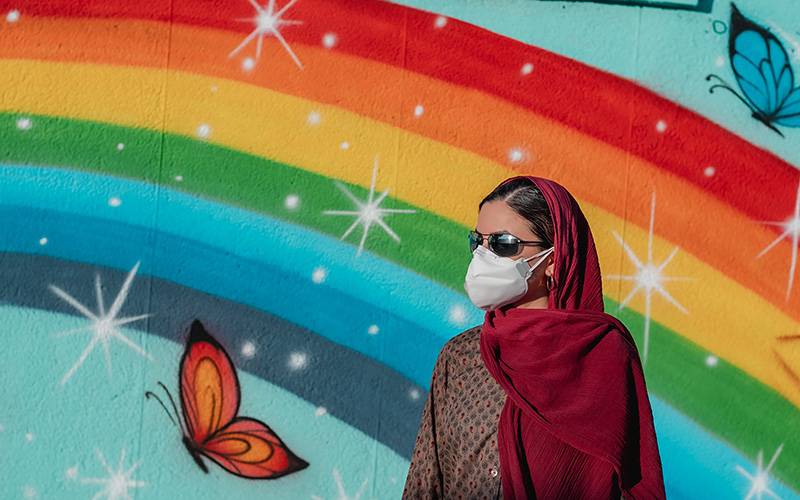
COVID-19: Families, children aged 0-4 and pregnant women: vulnerabilities, resources and recovery in Tower Hamlets
Claire Cameron
In close partnership with the borough public health team, we will run and repeat a survey of 2000 couple and single parent families with children aged 0-4, including 200 pregnant women, a longitudinal qualitative panel with up to 60 household members, including fathers and wider kin, and examine changing family support services, and emergent community resources such as mutual aid and peer networks. We will include two groups defined as vulnerable; pregnant women and shielded children. The survey will also be run in London Borough of Newham. Survey tools chosen are those being run by the Born in Bradford cohort study and by the International Parental Leave Network offering robust comparisons, with additional questions about community, neighbourly relations and mutual support.

Commission on Social Security
Michael Orton, Kate Summers, Rosa Morris
The Commission on Social Security, led by Experts by Experience, is an ongoing participatory project that aims to produce proposals for an alternative, improved, future of working-age social security. Led by Commissioners who have direct experience of social security receipt, and supported by a secretariat (Dr Michael Orton, Dr Kate Summers, and Dr Rosa Morris), the Commissioners’ have, over the last year and a half, combined their own expertise with those of grassroots organisations and individuals across London and the rest of the UK to envisage ways forward for the social security system. The Commission is exploring how it can work remotely during the COVID-19 pandemic.
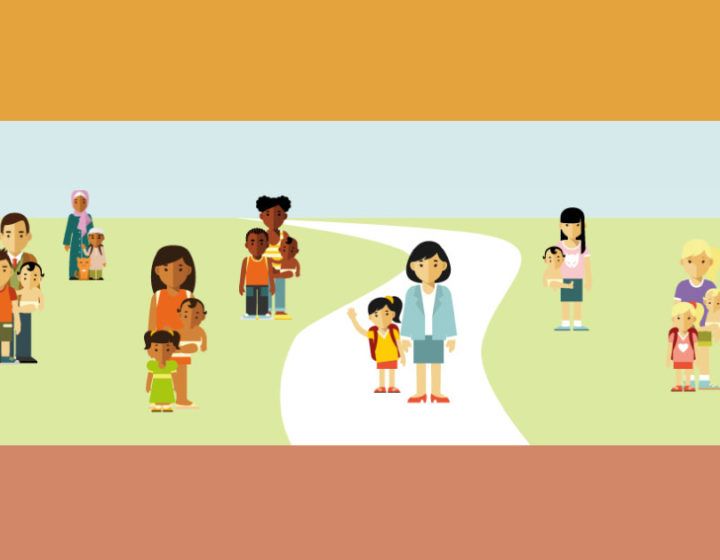
Caring without sharing: single parents' journeys through the Covid-19 Crisis
Elizabeth Clery (Gingerbread), Laura Dewar (Gingerbread), Dafni Papoutsaki (Institute for Employment Studies)
This a mixed methods research project, aiming to follow the journeys of single parents required to work and care, without the support of 'critical worker' education and childcare, through the Covid-19 Crisis. Gingerbread has undertaken qualitative interviews with 40 single parents in July-August 2020, to explore their experiences of working and caring during Lockdown. These 40 single parents will be interviewed again in January 2021, to explore their subsequent journeys and, in particular, whether and how concerns about job losses, changes to terms and conditions and a decline in availability of childcare were realized. In tandem, IES is undertaking analysis of Labour Force Survey (LFS) data to explore the work characteristics of single parents at the start of the Crisis and how these evolve over time (including employment rates, involvement in flexible and home working, transfer to and from the Job Retention Scheme). The broad themes to emerge from these two strands of analysis, and recommendations to improve experiences and outcomes for single parents, will be disseminated in November 2020 (interim report) and March 2021 (final report).
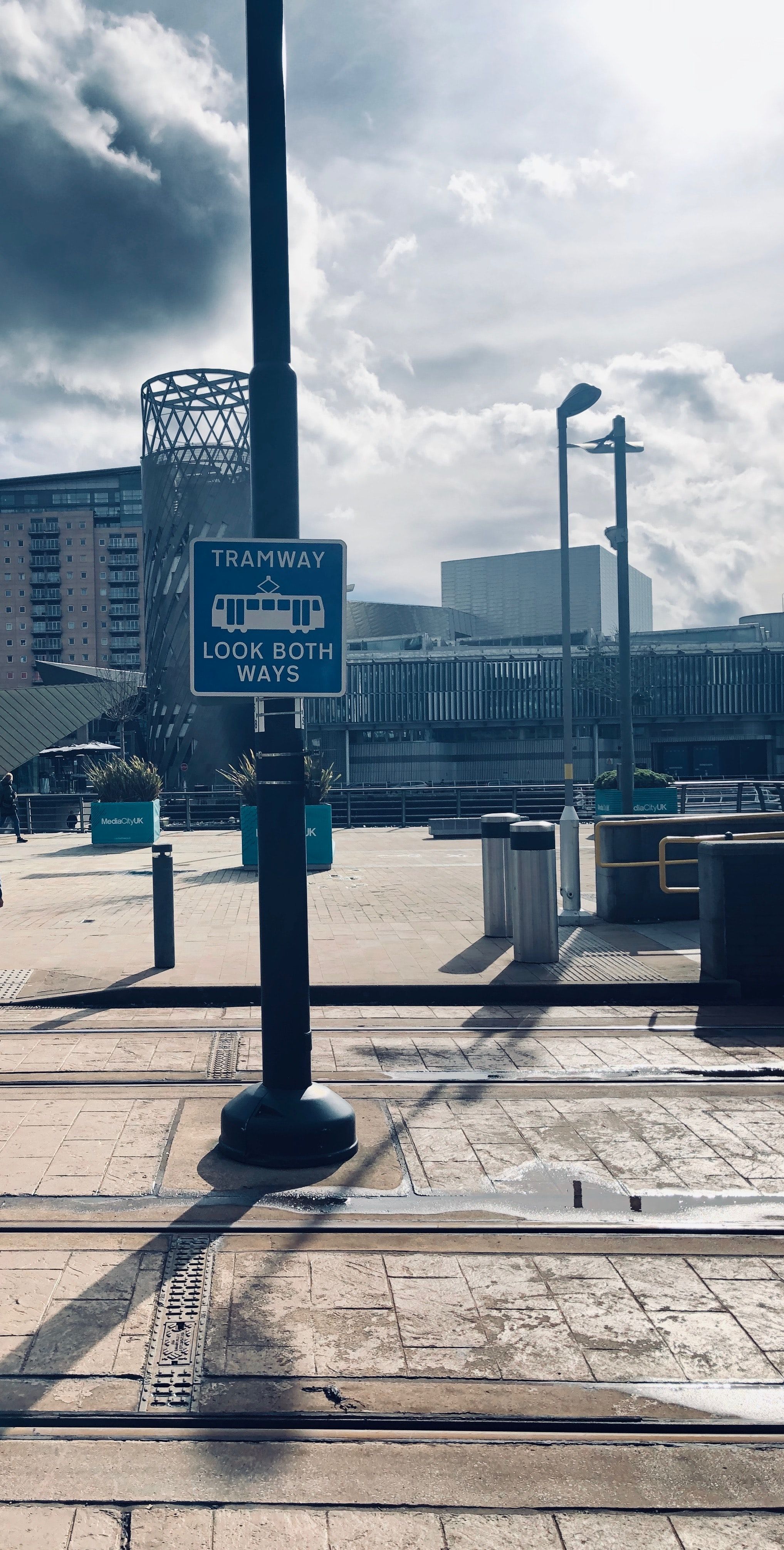
Universal Credit in Salford
Image: Brandon Mellors
Lisa Scullion
This is a qualitative longitudinal project being delivered as part of our Salford Anti-Poverty Taskforce. The Taskforce is a research and knowledge exchanged partnership with Salford City Council funded by HEIF. We are coming to the end of wave A (16 UC participants interviewed to date, 4 left to interview but on hold for now due to COVID-19). Wave B is due to start in around 6 months. We have also undertaken focus groups with stakeholders, with some stakeholder interviews also outstanding.
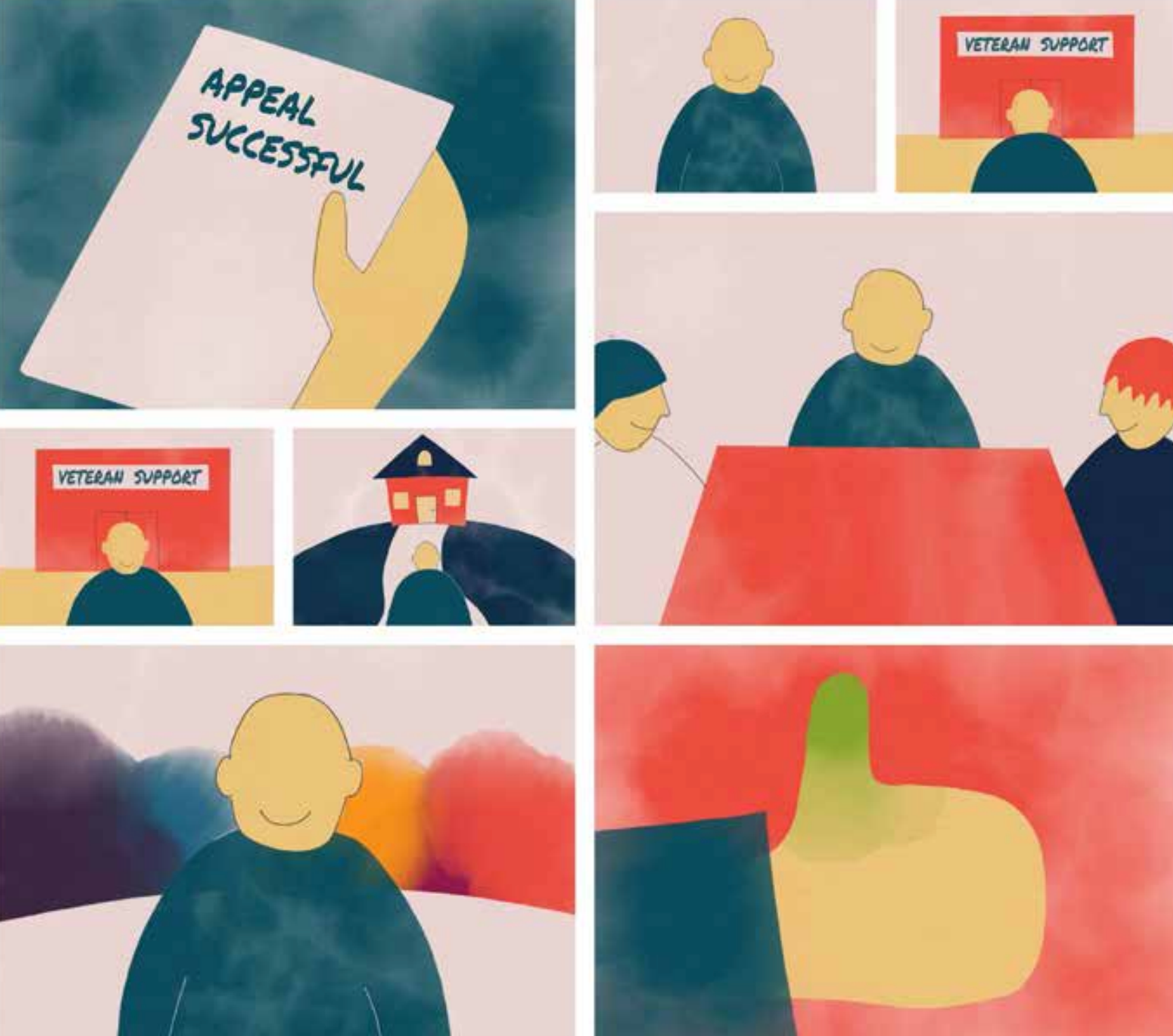
Sanctions, Support & Service Leavers: Social security and transitions from military to civilian life
Lisa Scullion
This is a qualitative longitudinal project representing the UK’s first research to focus specifically on veterans experiences of navigating the social security system. We are continuing the research for another three years. There are 52 veterans within the sample. Two waves of interviews have been completed to date and the next wave is due to begin imminently (April/May 2020).

Get Heard Scotland
Fiona McHardy, Poverty Alliance
The Get Heard Scotland (GHS) at The Poverty Alliance, is a programme designed to engage with members of communities affected by poverty and those working at the grassroots level regarding the development and implementation of policies intended to address poverty and social injustice. The Get Heard programme is intended to input independent feedback into policy processes, focused on the commitments made by Scottish Government in the Every Child, Every Chance: Child Poverty Delivery Plan 2018-22 in Scotland (CPDP). As part of this work interview research has been undertaken with 36 families across two local authorities in Scotland during the COVID 19 pandemic. This research is drawing on the experiences of households of the five priority groups of the Child Poverty Delivery plan: including families with a child under one year old, families which include a disabled adult or child and larger families.

Couples balancing work, money and care: exploring the shifting landscape under Universal Credit
Jane Millar, Fran Bennett, Rita Griffiths and Marsha Wood
This three year, longitudinal, qualitative research study will investigate how these aspects of welfare reform are being responded to and affecting work-care patterns, intra-household financial management and distribution, and gender roles and relations among a sample of couples receiving Universal Credit. The first phase (June 2018 to January 2019) included 123 interviews with 90 participants in 53 households, in four areas in England and Scotland. The participants will be interviewed again in September 2020.
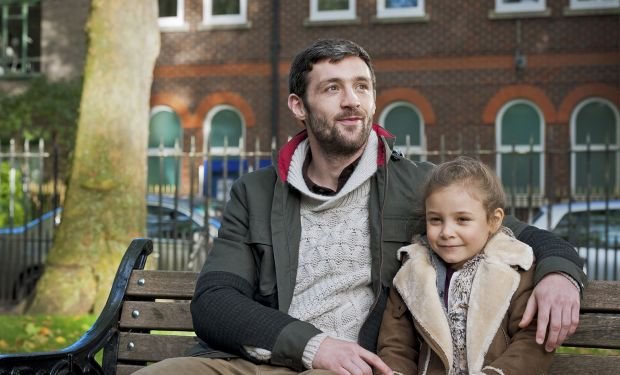
Bringing up a Family: Making ends meet
Katherine Hill, Ruth Webber, and Donald Hirsch
This is a qualitative longitudinal project looking over time at the experiences of families with children living below the Minimum Income Standard. Three waves of data have been collected, starting with 30 families in 2015, with 14 interviewed between January and March 2020. A further round is planned via telephone in September 2020.

How UK welfare reform affects larger families
Ruth Patrick, Aaron Reeves, Kitty Stewart, Josie Tucker
A qualitative longitudinal study will be carried out with primary caregivers in 44 affected larger families in London and Bradford. Three waves of interviews will generate early evidence of behavioural changes and develop a dynamic picture over time, through which it will be possible to contrast families’ expectations of how they will cope with what actually occurs.
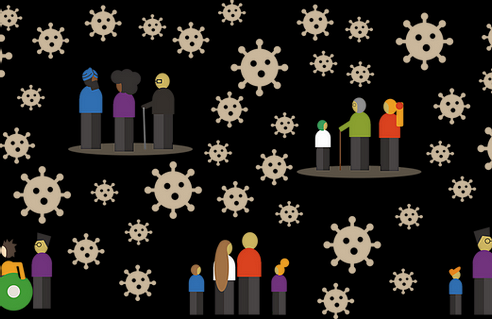
Welfare at a (Social) Distance
Lisa Scullion
The project involves three elements. Firstly, a claimant survey of 4,000 recent UC claimants and 4,000 pre-existing UC/ESA/JSA claimants using YouGov’s online panel. Secondly, case studies of claimant support in four geographical areas: Leeds, Newham, Salford and Thanet, where a total of 48 interviews with key actors (e.g. local authority, third sector, Jobcentres) will be undertaken to establish whether support is ‘fit-for-purpose’. Finally, the project involves qualitative longitudinal research with 80 claimants, who will be interviewed twice. Starting in May, we will recruit participants via our case study sites but also with the support of a specialist recruitment organisation to ensure inclusion of more vulnerable claimants."

Following Young Fathers Further
Anna Tarrant
The project commenced in January 2020 and is funded for a four-year period is a participatory, qualitative longitudinal and comparative analysis of the lives of young fathers, including those experiencing family poverty and social disadvantage. Involving three strands, the study is tracking the parenting journeys of young fathers, as well as policy and practice change, both in the UK and Sweden. Our original intention was to start the first wave of fieldwork in May 2020. This study builds out of up to twenty years of longitudinal research engagement in low-income communities in Leeds.

UC:Us
Image: Hati Illustrations for UC:Us
Ciara Fitzpatrick, Mark Simpson, Ruth Patrick
UC:Us is a group of people in receipt of Universal Credit living in Northern Ireland. They came together for the first time in June 2019 as part of a participatory research project funded by Joseph Rowntree Foundation, to discuss their experiences of claiming Universal Credit. The first phase of the project included participants working closely with researchers, and the group met up in a series of workshops to consider their experiences and to develop recommendations to improve benefits in the future. This culminated in the publication of a report by JRF in July 2020 which outlines the group’s vision for a social security system that “treats everyone with dignity and respect and as valued members of society.
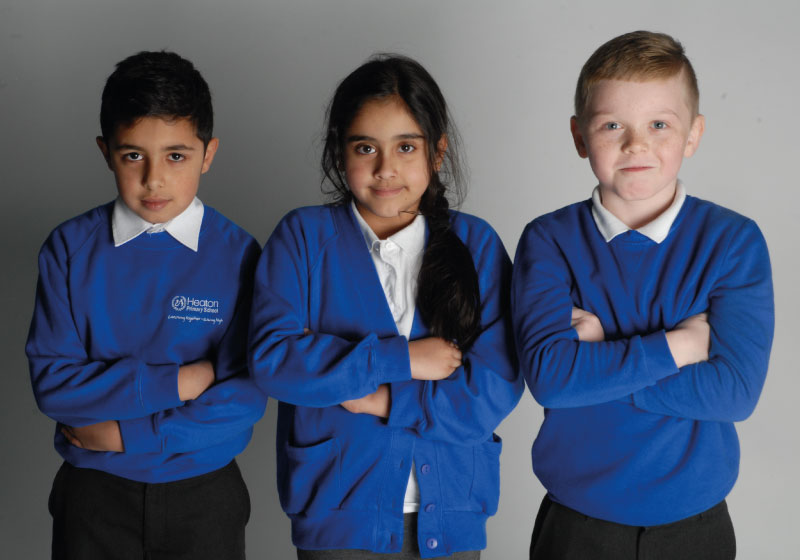
Born in Bradford
Kate Pickett
Born in Bradford is a large birth cohort study based at Bradford Royal Infirmary. This is a longitudinal survey that is currently launching a new wave of data collection with Born in Bradford (BiB). This new phase will involve imminent fortnightly longitudinal rapid surveys of parents and children, adding questions related to impact of COVID-19 to our online survey of BiB participants, starting a qualitative longitudinal study of around 100 families, which might include video journaling.


